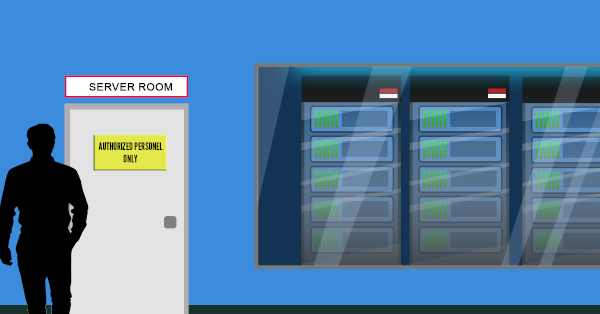
Headlines are often made by firms that have been hacked by cybercriminals. These events sound high tech and sophisticated. The truth though is that a lot of the times it is an amateur attacker chancing their luck with an unpatched security hole or bad password. Physical break-ins though can affect businesses far more, cause much more damage and are much more common but get talked about far less.
Similar to online hacks, most physical security problems arise from criminals that chance their luck on businesses that are poorly secured. On a rare occasion, they may strike a business owner that has forgot to lock up properly or failed to set the alarm.
By breaking in, these criminals exploit poor physical security to cause damage and steal valuables. By destroying or taking critical assets, a criminal may make a few hundred dollars in profit but the total damage done to the actual business can be into the tens of thousands of dollars or even much more.
While most IT security packages automatically load and remain on, physical security needs to be made a daily habit and requires regular updates.
Threats Starting from Within
While every business should have secure locks protecting their doors and some use an alarm system to add protection to valuable assets. However, these cannot protect you from an attack from the inside!
A disgruntled employee or a former employee, can do an enormous amount of damage to a business. Attacking their own business, an employee can likely do more damage during the day than a criminal could by breaking in overnight. Misplaced trust in the wrong individual can result in devastating consequences.
Employees typically have access to your business’s most valuable assets: data. A criminal may steal computer hardware to sell on for quick cash because most don’t fully understand the value of the data stored on it. The value of the data on a business computer can easily exceed the cost of the hardware one hundred times over.
Physical Security Heists
For criminals that know that physical security can be the weakest spot in a business’s armour it presents opportunity. For example In 2013, the media streaming service Vudu suffered a break in where criminals stole their server hardware to obtain credit card information stored within.
A tech savvy video streaming firm is highly likely to have up-to-date IT with excellent security measures. Thieves looking for easy cash recognized that the best way to get to the data was through their comparatively weak physical security.
The best security packages in the world are completely infective if the keys are left in the door and the physical hardware is easy to remove. The challenge of securing your data can be made even more difficult when using a location that needs to remain open to the public.
Securing Your Data with Good Security Practices
On of the most important responsibilities for businesses is to keep their customer data safe. It requires a duty of care to employ the best possible security practices to keep your customers safe. For a customer to have the trust to use your business over the competition, they have to see that their concerns are put to rest.
Locking down access to data for employees so they can only read and edit what is strictly needed, protects both customers and the business against many kinds of damage; both accidental and malicious. Also limiting device access to USB devices (by disabling USB ports), helps to prevent data being copied and carried offsite.
Physically locking down a server is one of the best deterrents available to prevent against theft. Locked server racks are an excellent piece of physical security that works on top of the building security that is already in place.
Make sure your business is up to the task of securing its data. Contact us today to audit both your digital and physical security.

Pingback: Invest In Your IT Security - Before It Is Too Late!